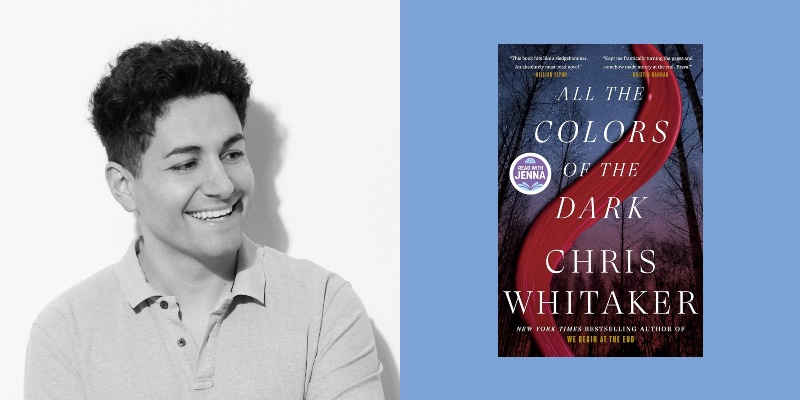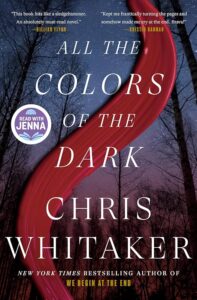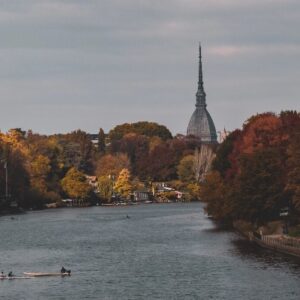The first book I can remember reading is Where The Wild Things Are. I have clear memories of being equal parts enthralled and frightened by Max’s journey across the ocean to the land of wild things. I was also horrified that Max had been sent to bed without dinner. As a greedy child I could think of no worse punishment. I don’t know what made me a reader back then, and it’s certainly something I’ve considered as I try and get my own children to pick up a book instead of a television remote. ‘But we can just watch the movie adaptation,’ my youngest son likes to offer as his author father dies a little inside. I try and tell him that to build your own world is often more exciting than watching a world constructed for you. He takes that to mean I want to play Minecraft with him. It’s a constant battle, but one I know I’ll persevere with because, whilst I know for certain that it was writing that has saved my life, it was reading that turned me into a writer.
I was once asked If you could look back over your life what would be the theme of your story? It’s a question that likely has multiple answers at differing times, from childhood through to coming-of age, family saga to, hopefully (and only because I’m a romantic) at least one, defining love story.
I take comfort in the fact that my answer to this question will likely change the next time I’m asked it, and that something new will alter the way I see the world. It’s the thing I love most about books. They open your world, no matter how closed off it might seem.
IT – Stephen King
I was around ten years old when I first picked up Stephen King’s terrifying tale of nightmares and coming-of-age. Until then I didn’t realise that books could be so visceral, so consuming, and so utterly frightening. I was a big reader from a very young age and would spend each weekend in the library, where my dad would leave me to discover the works of Roald Dahl, Dr. Seuss and Enid Blyton. But it wasn’t until he pointed to a shelf, filled with King books, and told me it was off limits, that I began to wonder what kind of stories adults read. He told me they were too scary. Naturally, I grabbed a copy as soon as I could, burying it in the children’s section when it was time to leave. I was likely responsible for the great London children’s nightmare pandemic of 1991. I still remember the fear, the utter dread at meeting Pennywise, reading through my fingers when Georgie stares into the storm drain. Until then I’d begged my dad to let me watch fifteen rated movies, but now I’d found something far more thrilling. I was addicted.
Self Help PTSD – Unknown
When I was mugged and stabbed at nineteen, I know that I could have easily given the guy my cell phone. But I chose to keep fighting, even when he pulled out a knife. Even when he stabbed me three times. I used to wonder why that was, it certainly wasn’t bravery. It felt innate, like I hadn’t made a conscious choice, I’d simply reacted to something that was out of my control. And I think it was that same loss of control that kept me awake at night, and every night for months after it happened. I had stitches and scars, and a group of friends who were quick to slap me on the back in that way men often do. A move that warmly means get on with it. Only I found that I couldn’t. I couldn’t sleep, eat, read a book, watch television. I’d look into the mirror and no longer recognise the person staring back at me. I was lost. Hopelessly, terrifyingly lost. I turned to drink, and drugs, and contemplated suicide.
Had I not walked into a library and borrowed a self-help book I know I wouldn’t be here now, certainly not writing this. There was a safety in turning to a book for help, not having to talk to someone, to outwardly acknowledge how much I was failing.
The technique it taught seemed impossibly simple.
Write it down. Read it back. Change it.
So I wrote about the trauma. And then I turned the people involved into fictional characters. I changed the location, the ending. I don’t know if it was way of taking back control, or simply unloading the way I was feeling in a way that I could never have spoken aloud, but it got me through those dark nights when the future seemed far beyond my reach.
I’ve searched for that book for two decades. I worked at a library and used all of their resources but still haven’t managed to track it down. I think of it often, and I hope that it’s helped others as much as it helped me.
The Last Child – John Hart
I spent a decade working in finance as a trader, and though I got myself into, and out of, more trouble than I could cope with, by my late twenties I was on a career path that made my parents proud, that offered my family the kind of secure future I’d always longed for. Yet I was deeply unhappy. I felt I didn’t fit, like I was watching life through a wide lens, distant and detached. And when I looked back it had always been writing that I turned to when life was tough.
Shortly before turning thirty, I read a crime novel called The Last Child by John Hart. It’s a beautifully written missing person mystery. I’d never read anything so gripping, that so commanded my attention, and made me ache for the resolution. I subsequently read an interview with John where he spoke of turning his back on a successful law career in order to focus on writing, to do something he loved. I was so inspired that the next day I quit my job, returned home to my heavily pregnant wife and said ‘Surprise, I’m unemployed and I’m going to be a writer.’
She was a student at the time so we had no other income. Overnight our lives changed, and the future suddenly didn’t look so certain. We struggled for money as I worked three jobs and wrote my debut novel. But although I earned less, I smiled more.
Harry Potter and The Philosopher’s Stone – J.K. Rowling
I have three children, and it’s my eldest, Charlie, that struggles most with reading, but also has the biggest love of books. It hadn’t started that way, and I was facing a losing battle until the day I brought the audiobook of J.K. Rowling’s debut home from the library. We listened to it together over weeks, Charlie totally enthralled, transported to a world where the underdog becomes the hero, his imagination soaring with each chapter.
He listened to the audiobooks on loop for years. It wasn’t until he was around ten that he was diagnosed with dyslexia. It was a revelation when he explained how the letters seemed to float from the page, and often appeared in the wrong order. We took him to the optician who tried him with various coloured lenses, and it was at green that he went from barely being able to recognise letters on the eye chart to being able to clearly identify them all.
The first time I came home from work and saw him curled up with a paperback of The Philosopher’s Stone is a memory I’ll never forget.
We Begin At The End – Me
My first two books had done well critically, but awards don’t pay bills, and whilst I was working three jobs and just about getting by, I felt I was missing my children growing up. I was rarely there for school events, only took a few hours off for birthdays and Christmas, and was plagued by this feeling that I’d been selfish in changing career, that I should have stuck with my city job and safeguarded my family’s future, no matter the toll it was taking on me. My third book changed things at a time when I needed it most. The day before lockdown we began a building project and removed the roof from our house. The next day the country shut down, and shortly after that my daughter was born. I discovered that babies don’t like being rained on any more than they like to sleep. Due to the time difference I was doing US Zoom events in the middle of the night before getting up for my library job in the morning. I was so tired I missed the call from my editor telling me that We Begin At The End was a New York Times Bestseller. I’m a full-time author now, and not a day goes by when I don’t consider just how lucky I am to tell stories for a living, and just how much books have impacted my life. And I dream of the day my own children reach for one of my books, although if I’m honest I’d settle for them watching the movie adaption instead.
***


















